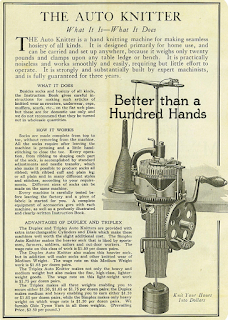Finally. At long last.
As a poet, it has never been about the words, anyway.
It is the same old cycle of panic on new innovation, but the proliferation of cogent text and code and technical explanations and poems and songs is the best thing that could ever have happened to me.
As creative writers, we no longer have to worry about the product. There is no more concern about the end game, the distribution, the market, the packaging, the placement. Just forget about it. Now we can write as we always should have, for the process. We celebrate our spurts and our dry spells and our miraculous flows that spill from somewhere in the crevices that rest between our brain, our mind, our soul and our lovely arms that gallantly deliver our hands and fingers to put forth words on keyboards and paper. It is a miracle. Sadly, AI isn't a miracle. Though it is cool, its outputs, while possibly interesting or timely or apropos, or accurate or voluminous, are well, not the result of the agonizingly beautiful creative process. So, it has no magic.
In December 2022, one of my colleagues announced the advent of ChatGPT and advised me to hop on board. I went to set up a userID a few times, then backed out. I needed to wait. Next the memes and talking heads started to show up on the socials, predicting the world-changing impact these artificially intelligent texts would have. Fearful predictions about academic writing, screenplay writing, any research summaries, and even code outputs taking jobs from just about everyone, dominated thought. Recently, another colleague, a blogger, was so excited because they used a photograph-generating AI platform and got "perfect" photos of tomato toast and avocado toast for their current post. My first thought? Oh no - the photographers will be out of work too!
And then I talked it through. It came to me in a thread. As a yarn. I became my Great Granny, Mary Ritchie. She moved from Ontario settled land into Manitoba settled land 150 years ago. She knitted scarfs and sweaters and mitts and socks but she would rather have been playing the piano. In her golden years, suddenly, all of these could be purchased, knitted by machines! She did not resent that one little bit. Sure, the yarns weren't hand picked, or unpicked from outgrown garments, but she was grateful for this AI. Of course, stalwart artisans (and poorer folk) kept knitting. And knitting did not die away with the move to higher technology.
Further, I thought about an ancestor who was a courtisan, a few centuries back. They made a good living in the court with their one specific aristocrat, plying the nuances of love skills. Some song, some touch. Some laughter, some erotics. Their talents were always carefully and tastefully applied and garnered satisfaction-a-plenty.  But then one day, their employer came into the boudoir with hard card photos of plump beauties with perky tits and bare bums, all dressed in frills alone, with maybe a parasol, or on a bicycle. Why hadn't I thought of dressing like that? The courtisan was momentarily dismayed and wondered whether their job was lost. But there was no need to worry. Pornography did not erase the sex trade.
But then one day, their employer came into the boudoir with hard card photos of plump beauties with perky tits and bare bums, all dressed in frills alone, with maybe a parasol, or on a bicycle. Why hadn't I thought of dressing like that? The courtisan was momentarily dismayed and wondered whether their job was lost. But there was no need to worry. Pornography did not erase the sex trade.
And fast fashion has not stopped people from creating their own garments. E-readers have not stopped people from reading. AI certainly can write, prolifically and accurately, and can provide an information service. But no, it cannot take a thought and process it this way.
I am glad for AI because now, my words are even more precious to me. Their beauty accelerates in my mind with belief in the intangible soup of being that has plopped them onto the page.
People using AI to extend their reach and contact (and sales and profile) are victims of trickery. Money is okay, and if your boss says so, well you do it because you need a roof over your head and some groceries in the larder. But it will not have been your own work, and you know that. So, again, it's okay.
When you write your song, or your story, or your letter, or your poem, or your column, or your poster, even as you collaborate, that crazy human magic gives a thrill. The blank page. The curious idea. The stupidity of the next concept. The wrap-around logic that you are searching for. The doubt. The self-assurance. These are the film behind the text, or hangul, or syallbics, or audio messaging. We benefit from this as makers. And funnily enough, when we review our writing projects, we re-live those sensations. It is like a magic mirror. The words are only the output, not the process.
Write on. It is an end unto itself.



